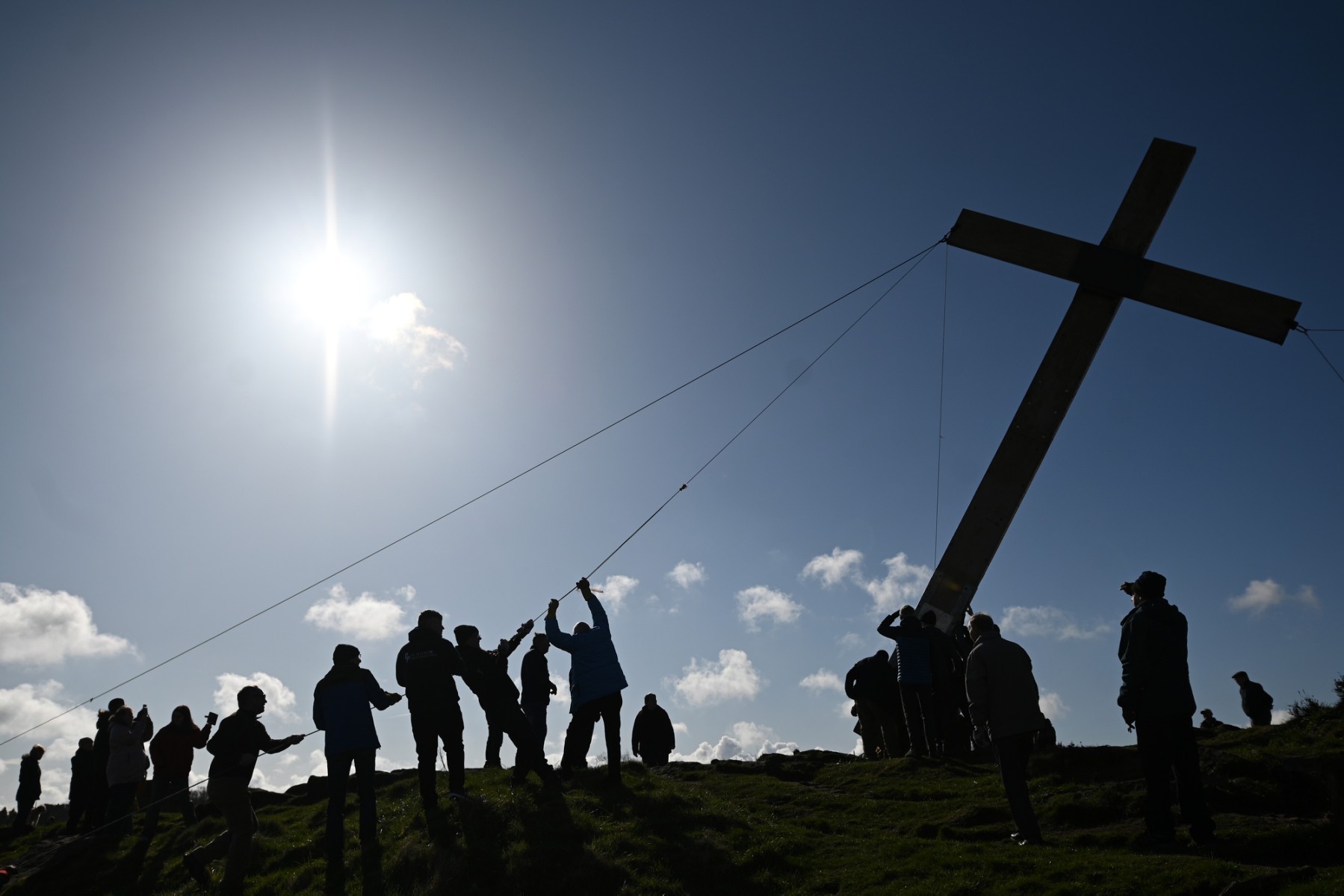When the Christian faith becomes increasingly difficult to live by, when challenges become as overwhelming as sweat and blood blurring one’s vision, the temptation grows stronger for us Christians to cast the cross from our shoulders and leave it behind.
In the careless hope that perhaps someone else—someone more capable and daring, or at least a hesitant onlooker or reluctant passer-by—might be compelled to try bearing it.
If only to carry it a bit further, then, just maybe, it is precisely the time, or indeed the exact moment, when a Christian’s lifelong sacrifice approaches completion.
And who knows, by taking a few more faltering steps, we might find ourselves at Mt. Calvary, ready to fall once more. This time, however, it would be a final fall; this time, falling with the cross we bear.
With a touch of hindsight, we suddenly recall the entire journey of courage and surrender, the long story of faith filled with youthful idealism and resoluteness, the recklessness of empowered adulthood, the wavering determination of midlife, and the agonizing self-doubt of our twilight years.
O that cross of victimhood!
O that cross of every Christian disciple!
Had we all known the utter pain of the cross, no one among us would have ever dared to say ‘yes’ to discipleship in the very first place.
Who would have ever thought? Those gentle and enchanting words of Jesus—”Follow me”—were uttered by the seashore. They were muffled by the sea breeze. The smell of fish and fishermen at the backdrop wafted up to every potential disciple’s nostrils.
These words were acted upon with mindless urgency and immediacy. The first disciples “immediately left” their family and livelihood. Would these words later become a loud voice?
A voice that would finally take the disciples to Jerusalem? Or would they become a lonely voice uttered in the wilderness or on the much-dreaded Calvary as well?
Who would have thought that after spending a long time walking, resting, eating, living, laughing, and being with Jesus, and after demonstrating obsequious docility along with protestations of love and courage, all the disciples of Jesus—except one—would simply abandon him and flee?
The more nervous they became, the farther they ran from Jesus and his cross in the end.
Yes, except one.
The beloved disciple–beloved and loving–as only love can face tragedy for what it is, as only love can provide real courage when real courage is called for, while the proud ego scampers for shelter elsewhere in its cowardice.
So inconsolable were the hearts of Christ’s disciples when their thoughts and emotions were all mixed up with unsettling and arresting questions: Did we follow him only for the cross? Did we leave our homes and livelihoods only for this?
What happened to all his awesome powers of healing the sick and calming the storm? Why did he not use them on the cross to prove all his detractors and persecutors wrong? And why did we not fight back?
And why did we cower in fear? And why did we leave him to be arrested, and scourged, and mocked, and insulted, and flogged, and crucified? And why did we abandon our Teacher, Master, and Lord?
And how did it ever cross the minds of his disciples that going back to fishing was the only thing to do to recover themselves from the tragedy and trauma of losing their master in the disgrace and ignominy of the cross?
And who would have thought that the risen Jesus would still go back to his disciples and greet them with the blessing of peace? Who would have thought that the risen Jesus would return to Peter and ask him about love and the demands of love?
Even if we go away from Jesus, and leave him alone on the cross to suffer and die, soon he will rise again to accompany us, lest we feel alone in our pain and suffering, to requite or reciprocate our fearful abandonment of him with his comforting presence.
Soon he will rise and come to us with the same forgiving gaze and the same question of love.
Yes, Christian life is painful because it is a life of victimhood. After all the cycles of evangelical annunciation and prophetic denunciation, hopeful trial and anticipated error, resounding success and numbing failure, fleeting victory and equally fleeting defeat, sooner or later, we will be pinned onto a cross, and will shout words of fulfillment, “It is finished!”
But faith insists, as it usually is stubborn, that death does not have the last word. Nature is replete with metaphors of dying and rising. So too resonates with our faith: “I am the Resurrection and the Life.”
Indeed, we are an Easter army, and “Alleluia” is our vibrant battlecry. Enough to assuage our pains, enough to stir up hope in our hearts.
Father Ferdinand Hernando is the founder of the Missionaries of the Beatitudes, a congregation living the Augustinian spirit of St. Ezekiel Moreno. He is a theology professor specializing on Dogma, Liberation Theology, and Methods of Theological Reflection. He manages the St. Ezekiel Charity Kitchen for the Poor in Quezon City.
